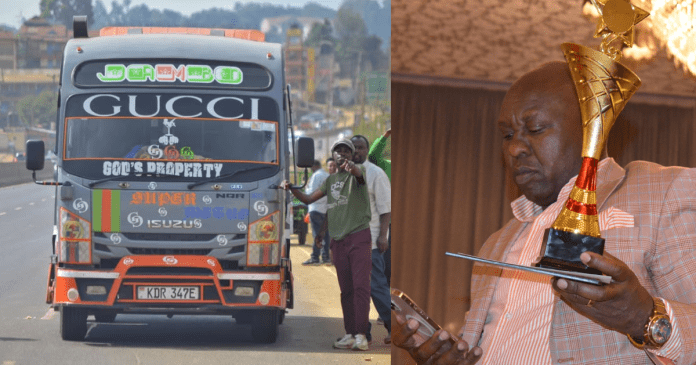For many, unfortunate circumstances can be crippling and have the capacity to turn dreams into dust. But for others, dark patches in life become the fuel for their rise.
Nelson Mwangi Nduki, the CEO of Super Metro, is one such example. His journey from a struggling young man searching for his father to building one of Kenya’s largest matatu fleets is a testament to resilience and determination.
Born and raised in Murang’a, Mwangi’s early life was far from easy. His father was away, trying to make ends meet. His grandfather was, however, available and was seriously concerned about his education. grandfather.
“My background was very poor. Eating and drinking was not easy,” he told Kenya.
Schooling was a challenge. He walked 25 kilometers to school daily, often on an empty stomach. Despite these hardships, he excelled in his studies, scoring 29 out of 36 in his Certificate of Primary Education (CPE) exams.
However, financial struggles forced him to repeat the class.
“I did my exams again and got 32 points, earning admission to a national school. But my parents still couldn’t afford the fees.”
His grandfather intervened, securing him a place at Kirogo Secondary School. Even then, paying school fees remained a struggle, but Mwangi’s talent in sports—especially football and cross-country, earned him a subsidy that helped him complete his education.
Kenya Airways Cargo wins prestigious African Air Cargo Airline of the year award
Nairobi hustle: From roasting maize to running a restaurant
After finishing secondary school, Mwangi some years jobless in the village. Then, at a funeral, an opportunity presented itself. He boarded a hearse, a vehicle that many dread, and only board it during those sad moments in life when it is inevitable.
The hearse was returning to Nairobi after transporting the body of a villager to his village for burial.
After the hearse ride, Mwangi arrived at Nairobi’s Machakos Bus Station. But with no plan.
“I was hosted in stalled buses, and hawkers fed me for four days before I was connected to a family member.”
Even with family, life in the city was tough. Eventually, he found himself homeless again.
“That’s when I met someone roasting maize. He introduced me to the trade, and I did that for nearly two years.”
In 1993, still searching for his father, he moved to Kangemi and landed his first formal job as a lift attendant at Zanze Restaurant in Cinema Plaza. Zanze was back then the place where the deep-pocketed individuals in Nairobi visited to unwind.
“The job paid KSh 1,800, but I earned daily tips, sometimes KSh 400. That was good money back then.” His dedication saw him rise through the ranks, eventually managing the restaurant over nine years.
The leap into the matatu business
With his savings and a loan from a shylock, Mwangi bought his first matatu in 1998. Encouraged by his success, the shylock later gave him another loan. This time interest-free. He used it to buy a second matatu.
His business expanded steadily, and he ventured into importing vehicles and spare parts.
“A group of friends once asked if I had been to Dubai to source parts. I confidently said yes, even though I had never travelled outside Kenya,” he quipped.
Determined, he did his research and secured the trip. “I got them what they needed, and as a thank-you, they gifted me a free vehicle.”
Summary of boda boda regulation bill that has caused riders to threaten strike
Super Metro: Restoring order in matatu industry
In 2013, Mwangi co-founded Super Metro alongside three friends, aiming to bring order to an industry synonymous with chaos. “We wanted to introduce professionalism, reliability, and discipline.”
Today, Super Metro boasts a fleet of over 520 buses, employing more than 200 support staff and hundreds of drivers and conductors.
Mwangi credits his success to resilience and faith in God.
“From roasting maize on the streets to leading a company like Super Metro, I can only thank God,” he concluded.









